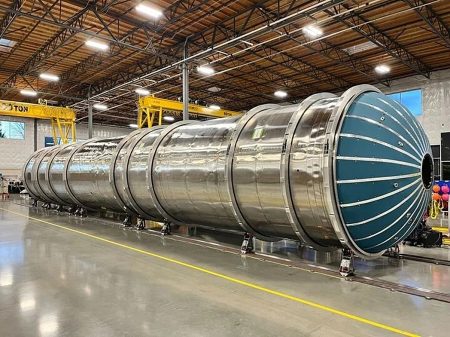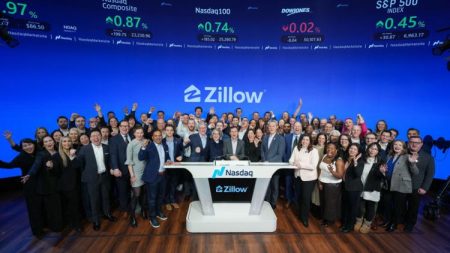Seattle’s Phaidra Secures $50 Million to Make Data Centers Smarter and Greener
In a significant development for the burgeoning field of AI-driven sustainability, Seattle-based startup Phaidra has announced a substantial $50 million Series B funding round. Led by former DeepMind researchers from Alphabet, Phaidra is pioneering an innovative approach to tackling one of technology’s most pressing challenges: the enormous energy consumption of data centers. The company’s sophisticated AI agents coordinate electricity usage, liquid cooling systems, and workload management to achieve efficiency levels that human operators or conventional programming simply cannot match. This breakthrough comes at a critical time, as the explosive growth of artificial intelligence is driving unprecedented demand for data center capacity worldwide, with corresponding environmental concerns.
The funding round, led by Collaborative Fund with participation from Helena, Index Ventures, Nvidia, and Sony Innovation Fund, brings Phaidra’s total raised capital to an impressive $120 million. This substantial investment reflects growing recognition that as AI capabilities advance, the infrastructure supporting these systems must evolve in parallel. “Every breakthrough in AI requires an equally ambitious breakthrough in infrastructure efficiency,” explains CEO Jim Gao, highlighting the company’s dual focus on reducing operational costs while simultaneously minimizing environmental impact. The 90-employee company plans to use this fresh capital to enhance its technology further, strengthen its strategic partnership with chip giant Nvidia, and expand its global customer base, positioning itself at the intersection of artificial intelligence and sustainability.
Phaidra’s approach is distinctively comprehensive, integrating data from numerous sensors to monitor multiple metrics in real-time across data center operations. Since its founding in 2019, the company has developed systems that go beyond conventional efficiency measures, essentially creating an intelligent oversight layer that continuously optimizes performance. This holistic perspective allows for dynamic adjustments that account for the complex interplay between different data center systems – cooling infrastructure, power distribution, and computational workloads – creating synergies impossible to achieve through isolated optimizations. The technology is particularly valuable as data centers grow increasingly complex, with traditional management approaches struggling to balance the competing demands of reliability, performance, and energy efficiency.
The timing of Phaidra’s funding could hardly be more significant, as data centers have emerged as major energy consumers globally, creating cascading effects throughout energy markets and local communities. The voracious power requirements of these facilities are creating troubling ripple effects: increased reliance on fossil fuels including coal and natural gas in some regions, electricity price spikes for residents living near data centers, and growing concerns about grid stability. These issues highlight a fundamental tension in the digital economy – while computing advances drive innovation and economic growth, their physical infrastructure creates substantial environmental challenges that require urgent attention. Phaidra’s technology directly addresses this dilemma by making existing and future data centers dramatically more efficient.
Major technology companies are not sitting idle in the face of these challenges. Microsoft, Amazon, and other cloud providers are aggressively pursuing clean energy solutions including solar, wind, and battery storage, while also investing in promising but less mature technologies like geothermal energy, next-generation nuclear power, and even fusion. However, these alternatives face significant hurdles in scaling quickly enough to match the explosive growth in computing demand, particularly with the emergence of increasingly power-hungry AI models. This gap between clean energy availability and computing energy needs makes efficiency improvements like those offered by Phaidra especially valuable as a complementary strategy – effectively doing more computation with less energy regardless of how that energy is generated.
The implications of Phaidra’s work extend far beyond individual data centers, potentially reshaping the relationship between digital infrastructure and sustainability. By demonstrating that AI can dramatically improve the efficiency of the very facilities that enable AI development, the company represents a fascinating case of technology being applied to solve problems created by technology itself. As data centers continue their inexorable global expansion, innovations that reduce their environmental footprint while maintaining or enhancing performance will become increasingly crucial. With its fresh funding, impressive leadership team of AI veterans, and growing partnerships with industry leaders like Nvidia, Phaidra appears well-positioned to play a significant role in ensuring that the digital transformation powering modern society becomes more environmentally sustainable rather than exacerbating existing challenges.














